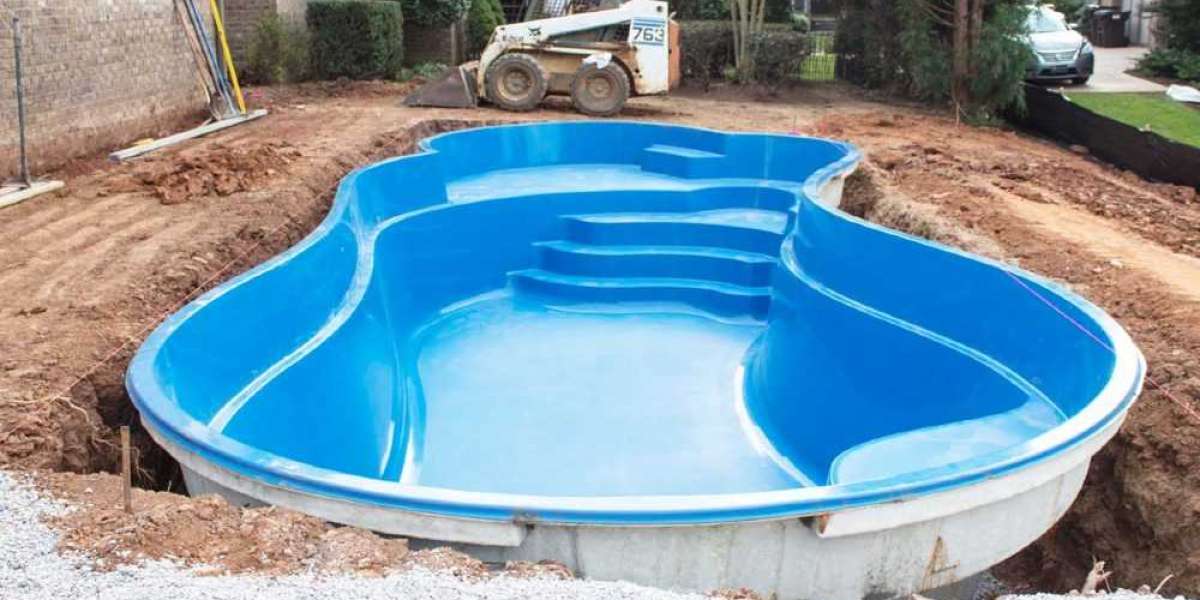Swimming pools are a dream feature for many homes, providing a space to relax, exercise, and enjoy quality time with loved ones. But have you ever wondered how swimming pool manufacturers build pools that can last for decades? Crafting durable pools involves a combination of high-quality materials, advanced techniques, and careful design. Let’s dive into the process and explore what makes these pools so reliable.
- Choosing the Right Materials
The foundation of any durable swimming pool is the material used in its construction. Swimming pool manufacturers typically select from three main types of materials:
- Concrete: Known for its strength and versatility, concrete pools are built to last. Manufacturers reinforce the concrete with steel to withstand pressure and environmental changes.
- Fiberglass: Lightweight yet sturdy, fiberglass pools come in pre-molded shapes. Their smooth surface resists algae growth and requires minimal maintenance.
- Vinyl: While more affordable, vinyl pools use liners that are resistant to tears and UV damage. Manufacturers design these liners to be replaceable, ensuring longevity.
Each material has its advantages, and manufacturers choose based on factors like climate, budget, and customer preferences.
- Precision in Design and Engineering
A long-lasting pool starts with a well-thought-out design. Swimming pool manufacturers use advanced software to create detailed blueprints tailored to the customer’s specifications. These designs ensure the pool integrates seamlessly with the property’s landscape and meets structural requirements.
Proper engineering also plays a crucial role. Manufacturers calculate factors like soil composition, water pressure, and environmental conditions to build pools that can endure wear and tear over time.
- Quality Construction Techniques
The construction phase is where durability truly takes shape. Swimming pool manufacturers follow strict processes to ensure every detail is accounted for:
- Excavation and Base Preparation: The area is excavated and leveled to create a stable base. Proper drainage systems are installed to prevent water damage.
- Reinforcement: For concrete pools, manufacturers use steel reinforcements to enhance strength. Fiberglass pools, on the other hand, are carefully positioned to avoid stress cracks.
- Sealing and Waterproofing: Manufacturers apply waterproofing layers and sealants to protect the pool from leaks and chemical damage.
- Finishing Touches: The interior surfaces are coated with materials like tiles, plaster, or gel coatings, providing both durability and aesthetic appeal.
- Incorporating Advanced Technology
Modern swimming pool manufacturers often use innovative technologies to improve durability and functionality:
- Self-Cleaning Systems: Integrated systems reduce debris and algae buildup, minimizing maintenance.
- Energy-Efficient Equipment: Pumps, heaters, and filtration systems are designed to last longer while conserving energy.
- Smart Controls: Automation systems allow users to monitor and control their pools remotely, ensuring optimal operation.
- Regular Maintenance Recommendations
Even the most durable pools need proper care to maximize their lifespan. Manufacturers often provide guidelines to help pool owners maintain their investment:
- Cleaning: Regularly remove debris and clean the pool’s surfaces to prevent buildup.
- Water Balance: Ensure the water’s pH, chlorine, and other chemical levels are within recommended ranges.
- Inspect Equipment: Check pumps, filters, and heaters for signs of wear or malfunction.
By following these steps, pool owners can enjoy their swimming pools for many years.
FAQs
- What is the most durable type of swimming pool? Concrete pools are considered the most durable, as they can be custom-built and withstand environmental changes. However, fiberglass pools also offer excellent longevity with less maintenance.
- How do swimming pool manufacturers ensure pools don’t leak? Manufacturers use waterproofing materials, high-quality sealants, and precise construction techniques to prevent leaks.
- Can swimming pools last a lifetime? Yes, with proper construction and maintenance, swimming pools can last 20-50 years or more, depending on the material.
- How can I extend the life of my pool? Regular maintenance, timely repairs, and following the manufacturer’s care recommendations will help extend your pool’s life.
In conclusion, swimming pool manufacturers rely on top-notch materials, advanced design, and meticulous construction to build pools that stand the test of time. By combining these efforts with proper maintenance, pool owners can enjoy their backyard oasis for many years. If you’re considering a swimming pool, choose the best manufacturers like Dan Technologies that have the expertise to create a long-lasting masterpiece.
